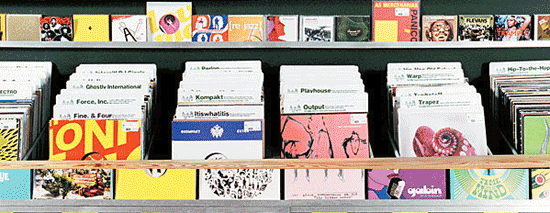I try not to make a lot of bold predictions on SK. I am but one man with unpredictable, selfish and often misguided taste. Truth is, far too many people spend their days trying to forecast the next big trend in music. I’ll leave XLR8R to coin the next sub-genre and predict music’s next great champion (often incorrectly). However, in my very small world, it is a rare occasion when a confluence of forces come together in such a way that leaves little doubt that something special is about to occur. Often the path to tangible musical discover comes from a trusted source like a friend’s recommendation, a publication you share tastes with or the occasional, surprising opening band that blows you away. Just doesn’t seem to come from blindly clicking on a link in one of 100 daily PR email blasts.
But that’s what led to DJ Mujava’s totally sick “Township Funk,” equal parts early-90s UK electronic, staccato drum breaks, blah, blah … Let me just post the email from Warp:
‘Township Funk’ is tough, dark, African dance music from the industrial city of Pretoria, South Africa.
It’s perhaps the most infectious dance record you’ll hear this year, echoing the early Warp sound of LFO or the Forgemasters in an uncanny way, almost 20 years on, across continents.
Is South Africa the new hip place for electronic music ?
Maybe….but we certainly hope that South African house will go worldwide with this track.
‘Township Funk’ will be released on Warp Records on 12″ on september 15th worldwide (excl UK) and available on all good digital outlets early, from august 11th.
In the UK, it will be released by the good people of This Is Music LTD.
The compelling part of this email is not the record’s impending release but the notion of South Africa as the “new hip place for electronic music.” Will hipsters overhype “the Pretoria sound” or Johannesburg’s indigenous house-inspired Kwaito music as if it were the new Baile Funk or Baltimore Gutter music? You hope a good balance can exist between exploiting the sound and disseminating it because the beauty of DJ Mujava’s cut is that it’s completely unencumbered by external expectation, much like Konono #1 before it, arriving at its current state through a series of organic musical evolutions and necessities. Maybe I’m overthinking it, but its nice to sit here in an era of sonic overindulgence and be excited by something so minimally raw yet strangely sophisticated.

